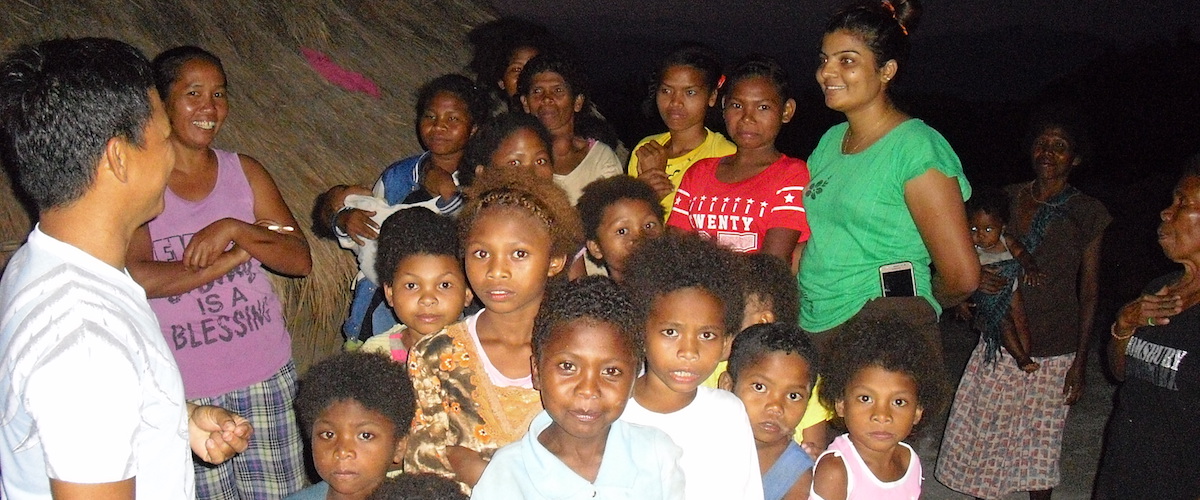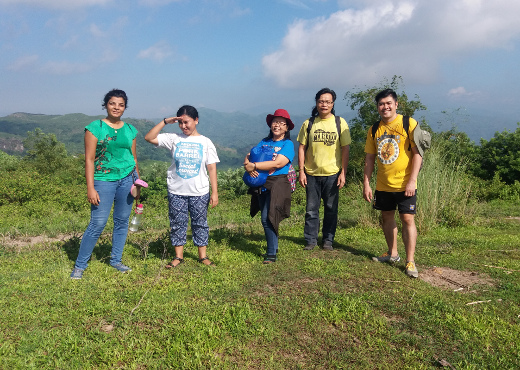
Mariam was part of a small group of lay people and religious who spent two weeks, from June 12 to 26, immersed in the culture and spirituality of the Aetas to deepen their knowledge and awareness of contextual theology. The immersion experience was part of the Asia Pacific Contextual Theology for Engagement Programme (ACOTEP) of the Loyola School of Theology in Ateneo de Manila University.
A two-hour bus ride took them from Manila to Capas, Tarlac, where they faced a steep trek up a mountain to reach the remote village of Yangka. They were not used to climbing mountains, but the strenuous climb was rewarded by the warm welcome and friendship of the Aetas.
The Aetas inhabited Mt Pinatubo for 600 years until its lethal eruption in 1991. They have their own artefacts, cultural ethos, mystical cosmologies and local theologies that are distinct from those of the unat, or the lowlanders. The volcano’s eruption dispersed and forced the Aetas to interact with lowlanders in evacuation centres. While some integrated with the unat, others chose to keep their indigenous culture and traditions.

From Yangka, they travelled to a more remote village called Balatung, where they met a mang-aanito (spirit medium) and witnessed a spiritual dance. There Filipino participant, Agnes Reyes, had the special experience of naming a new-born baby, who was about to be baptised. For the Aetas, names given by a guest are highly valued and Reyes named the baby after St Joseph. Before leaving the village, Fr Jojo Fung SJ, JCAP Coordinator for Jesuit Companions in Indigenous Ministry and ACOTEP Coordinator, celebrated the Holy Eucharist in the open grassland.
The group’s next stop was Tarukan, where they spent nine days learning the concept of pastoral spiral in contextual theology in dialogue with the Aetas. There they were able to observe the day-to-day life of the people. The children wake up early, sweep the ground, bathe and then go to the school. In the morning, the fathers and the male elders go out to the field to work while the mothers stay at home with the rest of the children. In the late afternoon, they assemble for “umpukan”, during which they share good practices, advice, plans for the upcoming days, and strategies for planting and harvesting.
Filipino Br Edgar Mationg FIC said he gained a rich spiritual realisation while in the company of the Aetas. “It has been a celebration of being a part of God’s humongous creation, and it has made me realise more that I am human and Catholic.”
Reyes found God’s creative manifestation in the poverty of the indigenous peoples and the richness of their cultural traditions. “My experience made me realise all the more that God is revealed not only in the theology of the classroom. He is experienced in a manner so real in the context and face of the poor.”
Felicia Dian Ravenska Parera from Indonesia remarked that, “the Aetas’ wisdom, simplicity and strong bond with nature reveal an interconnectedness that reflects God in each creation”. For her, being a part of ACOTEP was a clear sign of the work of the Spirit.






